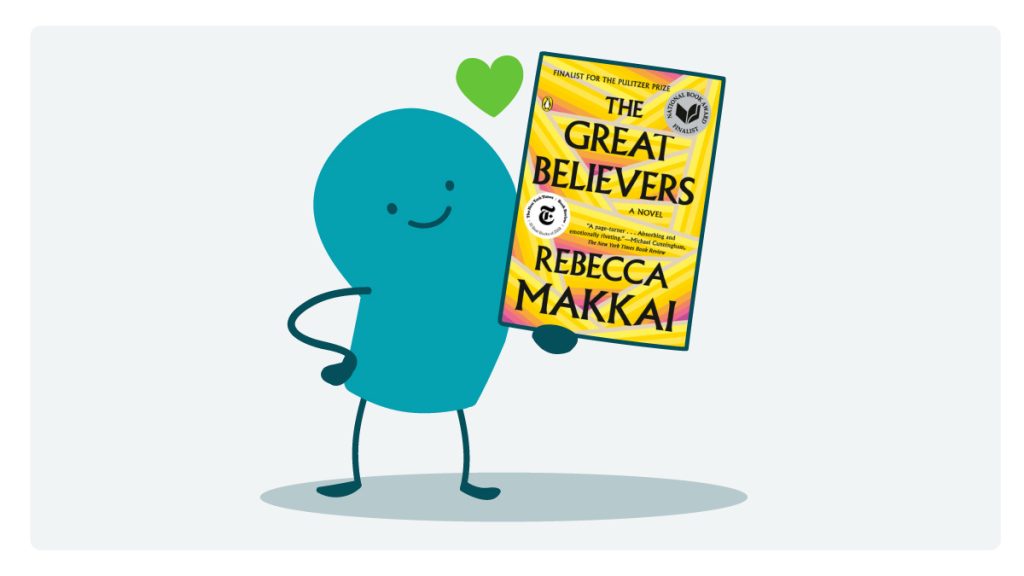
Today we’re returning to the We ❤️ Health Literacy Book Club to highlight a novel that’s set against the backdrop of the AIDS epidemic in the 1980s: The Great Believers by Rebecca Makkai. The book not only chronicles the early days of one of the biggest public health crises of modern times but also illustrates how the effects of trauma can span decades.
The Great Believers is told from the perspectives of 2 characters: Yale Tishman, a development director for an art gallery in 1980s Chicago, and Fiona Marcus, a woman searching for her estranged daughter in Paris 3 decades later. Yale is working on a major acquisition for the gallery. Had circumstances been different, it might have been a thrilling time in his life. But outside of work, he’s watching friend after friend suffer and die, and he’s experiencing never-ending grief — not to mention anger, confusion, and survivor’s guilt.
Fiona, a minor character in the 1980s chapters, loses her brother (and many friends) to AIDS. Fast-forward to 2015 and she’s facing a different kind of loss: Her adult daughter seemingly wants nothing to do with her. It’s clear that Fiona has carried her grief and trauma through the decades, which has harmed many of her relationships along the way.
No doubt, The Great Believers is a gripping, heart-wrenching story — and it just so happens to be full of health comm takeaways. Here are a few:
- Clear and accessible health information is critical. As the novel illustrates, there was a lot that the medical and public health communities didn’t know during the early days of the AIDS epidemic. This, combined with rampant stigma, allowed misinformation to flourish. The result was that people were (understandably) confused about their risk and how to protect themselves. This demonstrates why it’s so important for health communicators to clearly explain what we know — and what we don’t — no matter the topic. When we do this, we help build trust and make sure our audiences can make informed decisions to protect their health.
- Empathy is powerful. The novel’s gay characters face serious discrimination — including in the health care system. But when people treat them with empathy and respect, it goes a long way toward helping them get important health services. For example, Fiona connects Yale to a doctor who know how he’s feeling, treats him with compassion, and understands the need to protect his privacy — and Yale decides to get tested. We can’t stress the importance of empathy enough!
- Trusted messengers can make a big difference. We don’t have to tell you that health messages are more likely to resonate with our audience if those messages are coming from someone the audience knows and trusts. Yale’s partner Charlie is the publisher of a newspaper for LGBTQ+ audiences, and he’s serious about educating readers about protective behaviors like condom use. In our own work, we can look to people and organizations that already have connections with our audiences for help communicating and sharing our health materials.
The bottom line: The Great Believers is a powerful story that chronicles the devastating effects of the AIDS epidemic through the decades — and it offers some important health comm takeaways.
Copy/paste to share on social (and tag us!): This week, CommunicateHealth chats about Rebecca Makkai’s The Great Believers, set against the backdrop of the AIDS crisis. Besides being a great read, this novel includes valuable #HealthComm lessons: https://bit.ly/3WJtAOo #HealthLiteracy
Browse recent posts